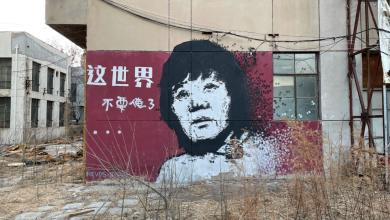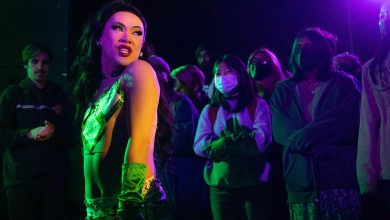Bless You, Clarissa Darling
 I, like many children of the 1990s, was thrilled upon learning that Nickelodeon, starting in late July, would be rerunning the television programs of my youth in a nightly 2-hour block entitled “The ‘90s are All That.” I was even more thrilled to rediscover why “Clarissa Explains It All” was one of my favorite shows growing up.
I, like many children of the 1990s, was thrilled upon learning that Nickelodeon, starting in late July, would be rerunning the television programs of my youth in a nightly 2-hour block entitled “The ‘90s are All That.” I was even more thrilled to rediscover why “Clarissa Explains It All” was one of my favorite shows growing up.
Clarissa Darling is the clever teenage protagonist of the ‘90s Nick show, “Clarissa Explains it All.” The show portrays Clarissa as she deals with her annoying little brother, her wacky parents, and the typical mundane activities of the high school crowd. This may not seem like a groundbreaking plot, but the show’s production style and Clarissa’s characterization make her a great young woman to have had (and have again) on TV.
Here are some examples of her awesomeness from the episode “No T.V.,” in which Clarissa’s mom bans the family from watching television for a week.
The Girl’s Got Brains
I had forgotten just how intelligent and analytical Clarissa was. Within the first 5 minutes of the episode, she had already quoted Karl Marx! Seriously, can you think of any other kids’ television show character that quotes Karl Marx? Throughout the episode, she critically analyzes television and the role it has in people’s lives, acknowledging her desperation to watch TV, but wondering why that desperation exists. Clarissa laments that, without TV, she “won’t be able to keep up with the cultural level of my peers.” Later, she comes to the realization that “staring into an empty space and watching TV” aren’t that different from each other, and rattles off statistics about television content (“Kids watch 3.5 hours of TV a day,” meaning they see “5 beer and wine commercials, 33 acts of violence, and 38 sexual references”), coming to the conclusion that most TV “would insult a 5 year old.” It was so heartwarming to remember that the cool girl my friends and I all wanted to be like when we were in elementary school was not always talking about boys or school dances or her image, but was instead sociologically analyzing media. How badass is that?
We See Everything Through Her Eyes
Clarissa Darling was, of course, not the first young female protagonist on television. But what is unique about the way this character was presented was that Clarissa broke the fourth wall and talked to the audience, sharing her thoughts about conflicts in the episodes. This forced the audience to see things through her perspective and listen to what a female character had to say. The storyline depends on her voice and opinions, for her asides to the audience are what tie each scene together.
I’m just gonna say it. I still look up to Clarissa Darling. My reunion with the show has shown me just how in line the character was with feminist ideals. She speaks up, is confident in her intelligence, dresses however she wants, and questions social behavior. In “No T.V.,” when trying to see if her mother is paying attention, Clarissa says that she is going to join “a radical feminist folk singing group.” Just the fact that a kids’ TV show even brought up feminism is so wonderful. Think of the young children who may have asked what a feminist was after watching that. You would think that since this show is 20 years old, it would be normal to see girls like Clarissa on television by now – but it’s not. So, all of my fellow ‘90s babies, let’s take a moment to reflect on our childhood, and say, thank you, Clarissa, for being a wonderful representation of women in the media.





This was my favorite show on Nickelodeon ever.
This was my favorite show on Nickelodeon ever.
We need more role models like Clarissa in the media. She unfortunately been replaced by a slew of vacuous, image obsessed, and arrogant Disney stars. 🙁